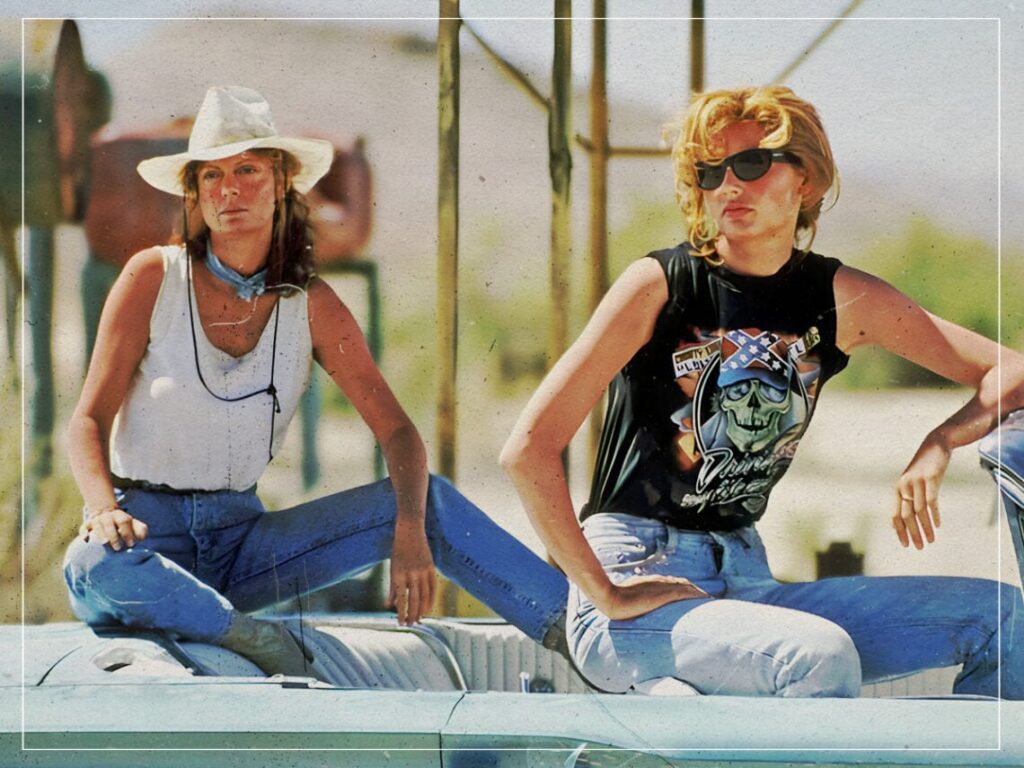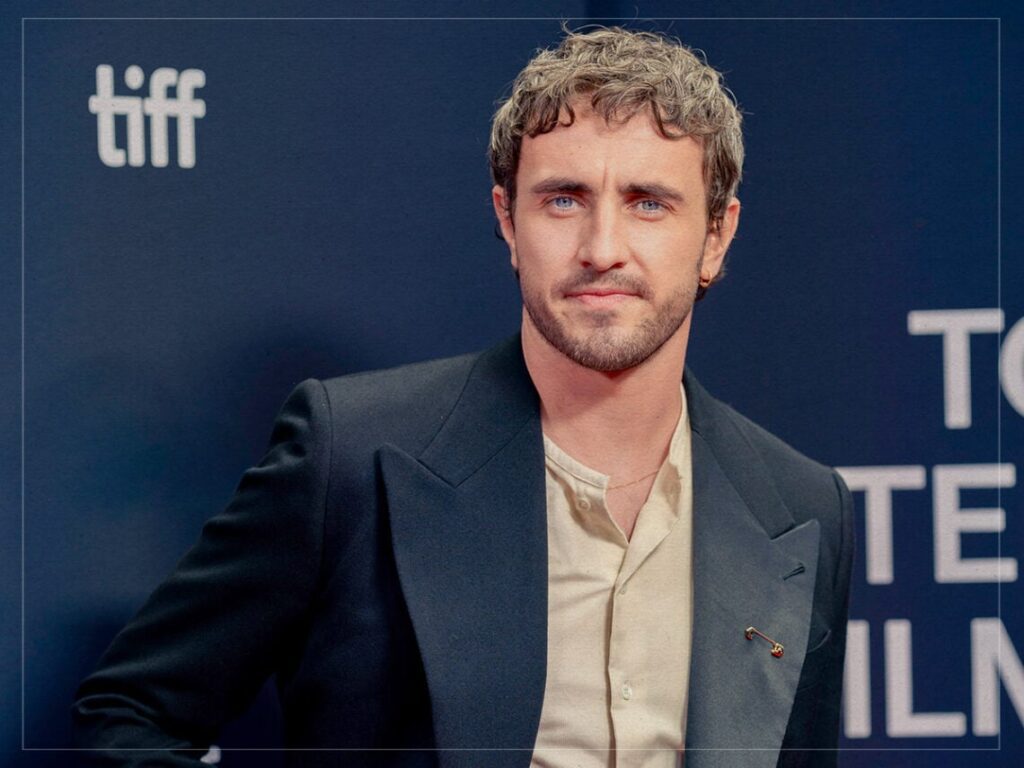How ‘Thelma and Louise’ changed Geena Davis’ life
 Posted On
Posted On
(Credits: Far Out / Alamy)
Following the release of movies like Alien and Blade Runner, Ridley Scott made his first entry into the road movie genre with Thelma and Louise. Since the popularity of movies like Bonnie and Clyde, Easy Rider, and Badlands, the genre has become closely associated with the destruction of the American Dream, and Thelma and Louise fits in perfectly.
The movie follows a pair of friends who set off on a road trip, only to end up on the run after murdering a man. The incident occurs when Thelma dances with a man at a bar, only for him to attempt to rape her. In defence of her best friend, Louise shoots the man, causing them to drive away with no idea what to do.
Plenty of thrilling action occurs, with Brad Pitt (in one of his first roles) starring as a handsome cowboy-esque stranger who teaches Thelma how to rob a shop. At the heart of the film is an emphasis on female friendship, with the pair always having each other’s backs, especially when the men around them are violent and manipulative.
Geena Davis starred as Thelma, having won an Oscar for her performance in The Accidental Tourist the year before. Her role in Scott’s film only furthered her career, becoming one of her best-known parts. However, not only did it present her with more significant acting jobs, but the movie also encouraged Davis to become an activist.
Heralded as a feminist classic, Thelma and Louise sees the women fight against sexual predators and misogynists, with Thelma, for example, stuck in an unhappy marriage with a man who expects her to do as he says. Yet, by ignoring his demands and embarking on a journey of discovery with her best friend, Thelma becomes liberated, even if the movie ultimately ends in tragedy (albeit a decision that the women choose together).
Due to the positive response from many women in regard to the film’s feminist themes over the years, Davis decided to found her own organisation in 2004 – the Geena Davis Institute on Gender in Media.
Additionally, watching children’s television shows with her daughter encouraged her to investigate the lack of gender equality on screen, with Davis noticing an imbalance of female characters. Her organisation found that female characters were over-sexualised and objectified considerably more than male characters in a variety of shows and movies.
The Geena Davis Institute on Gender in Media is one of the leading organisations in the entertainment industry investigating how women are presented on screen. Davis hopes that with increased research, we can work towards a fairer depiction of women in media, which can have a significant impact on female viewers’ own lives.
[embedded content]


